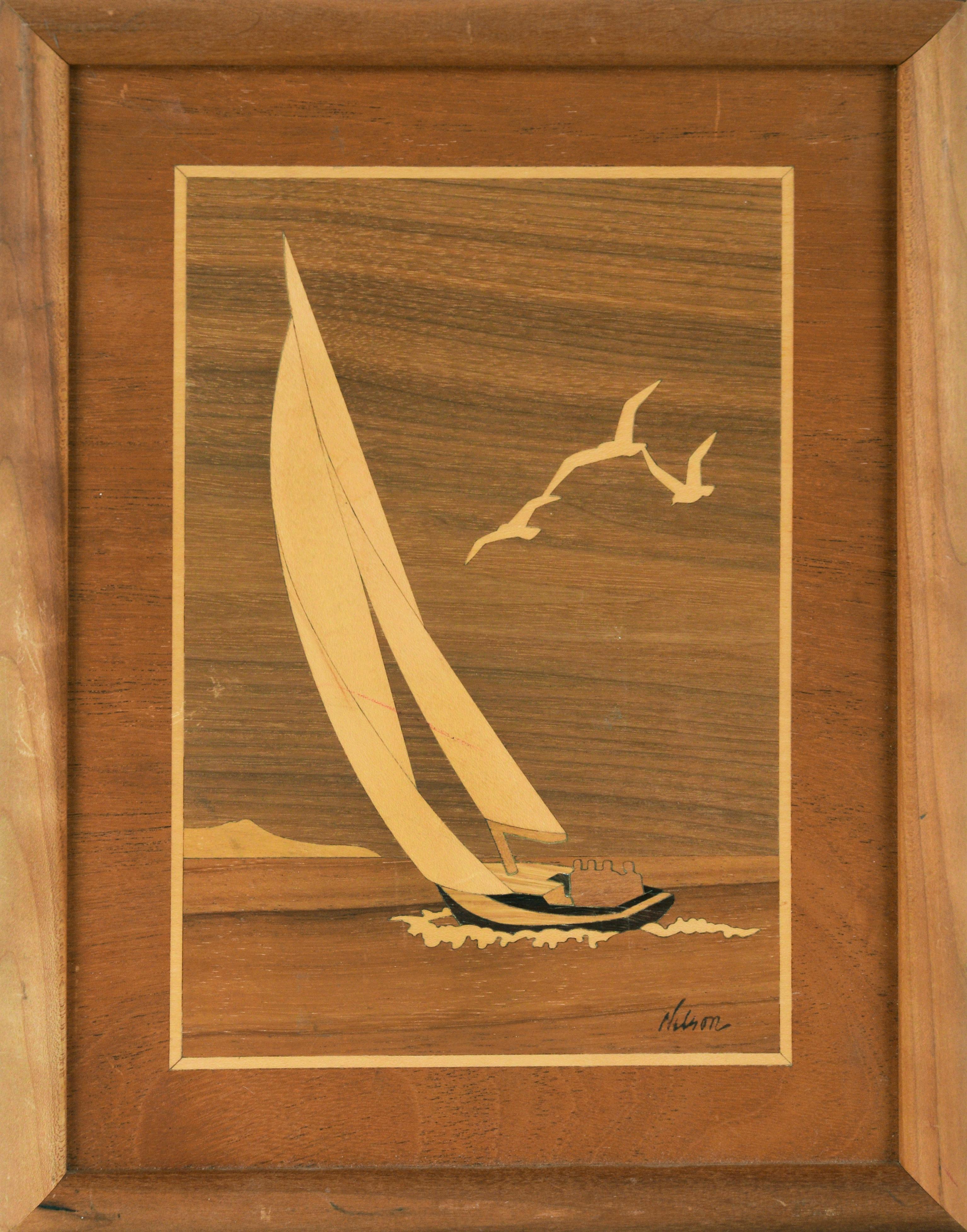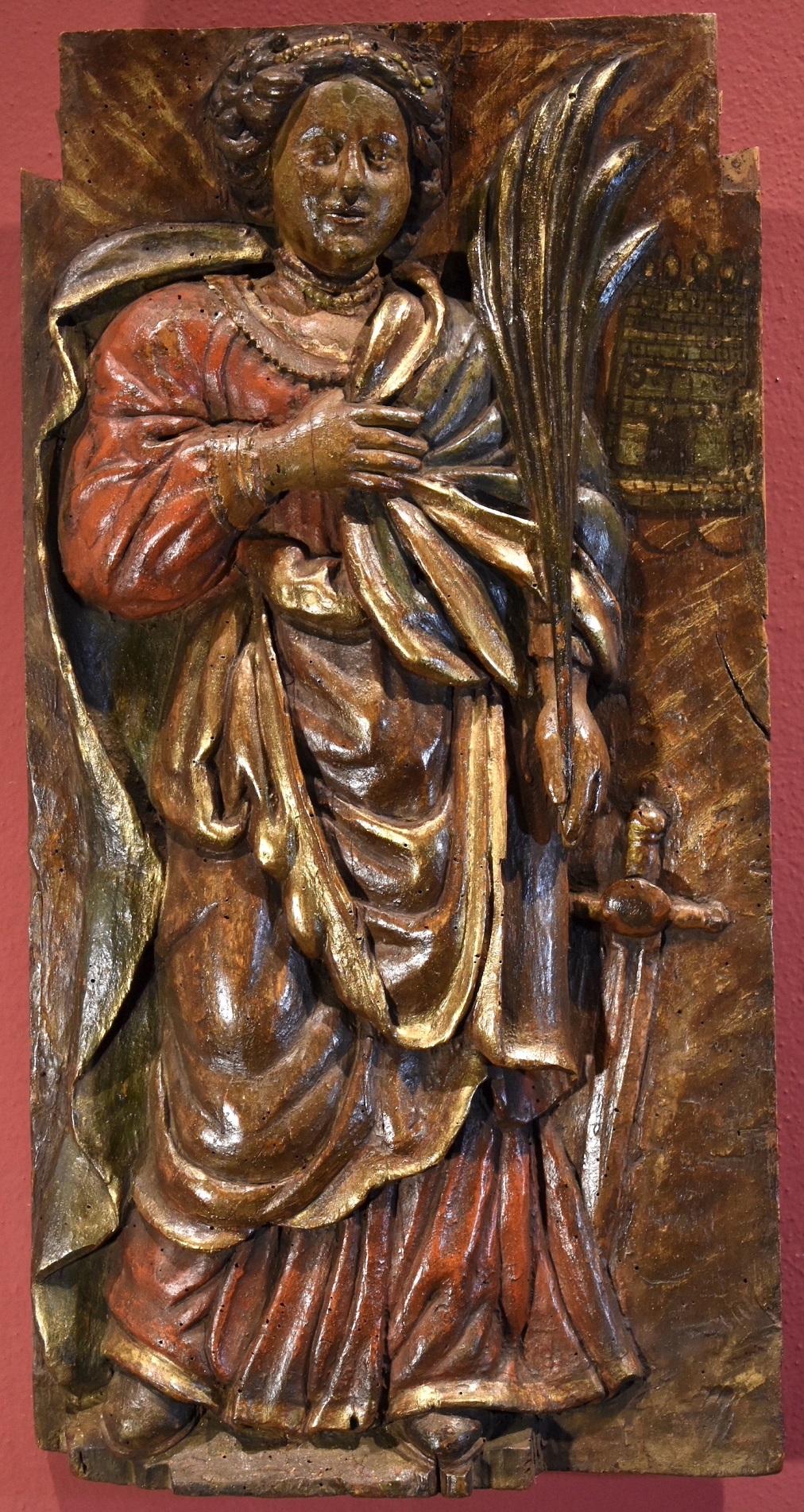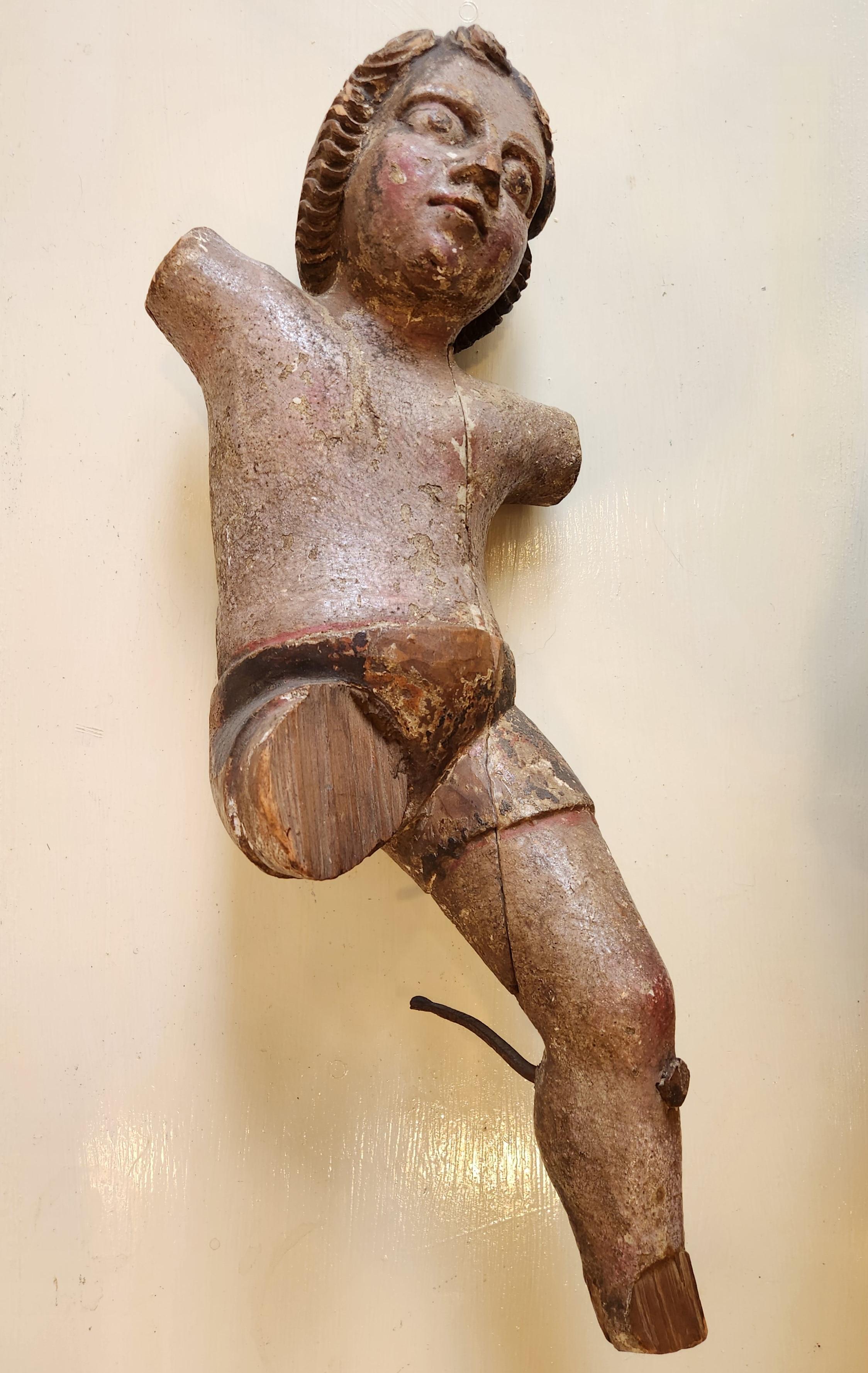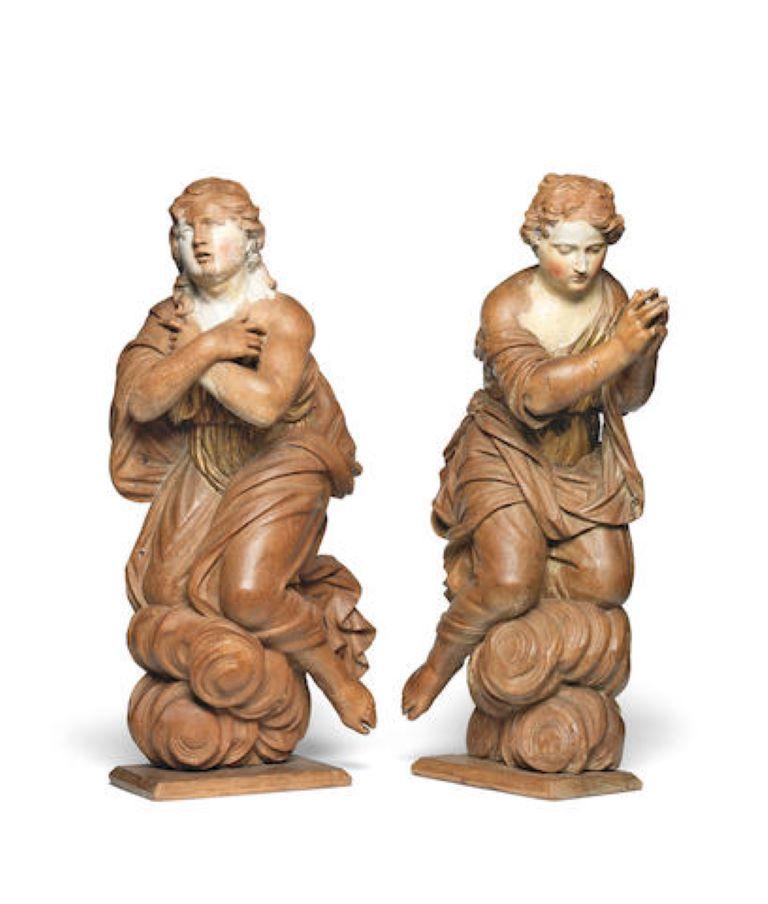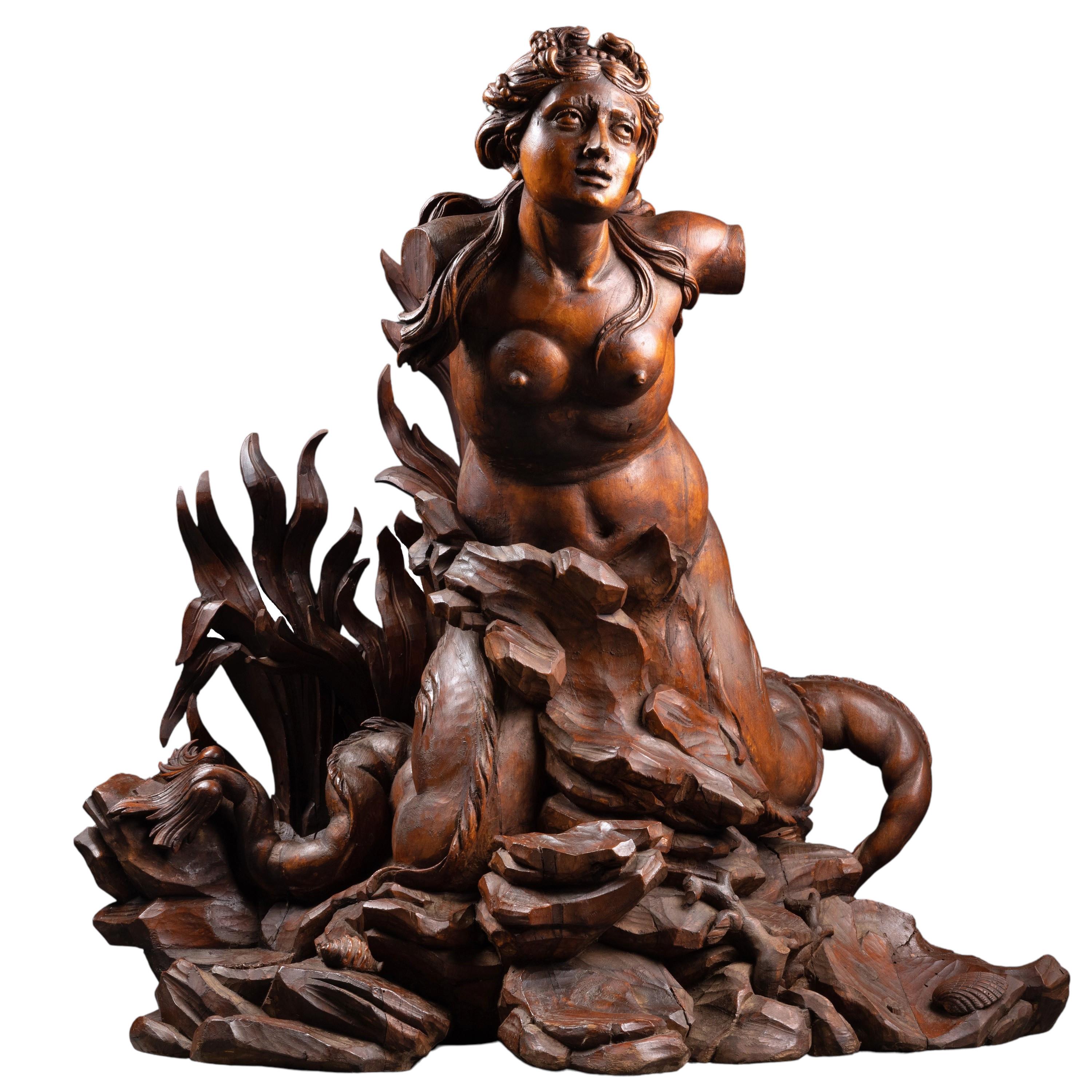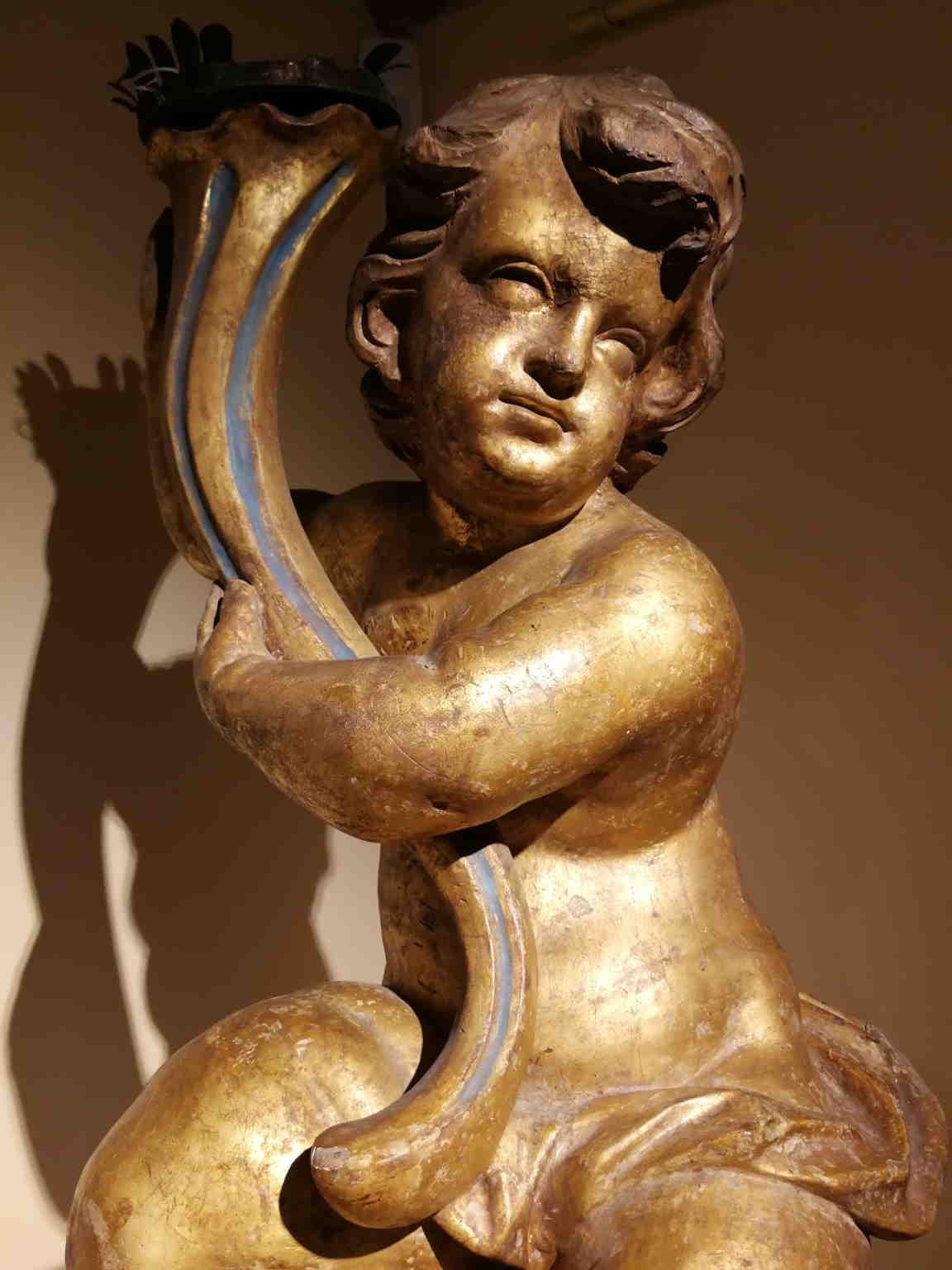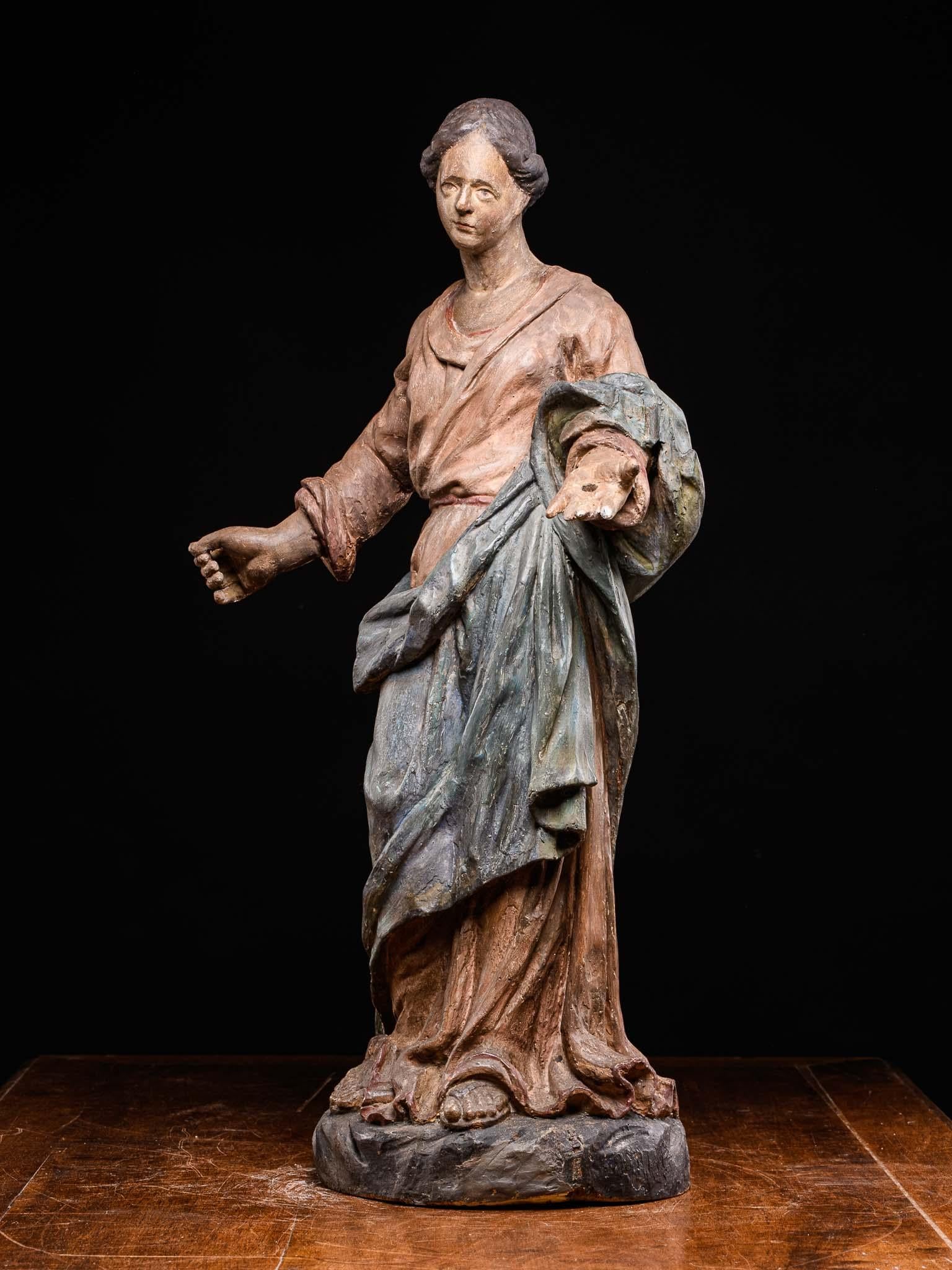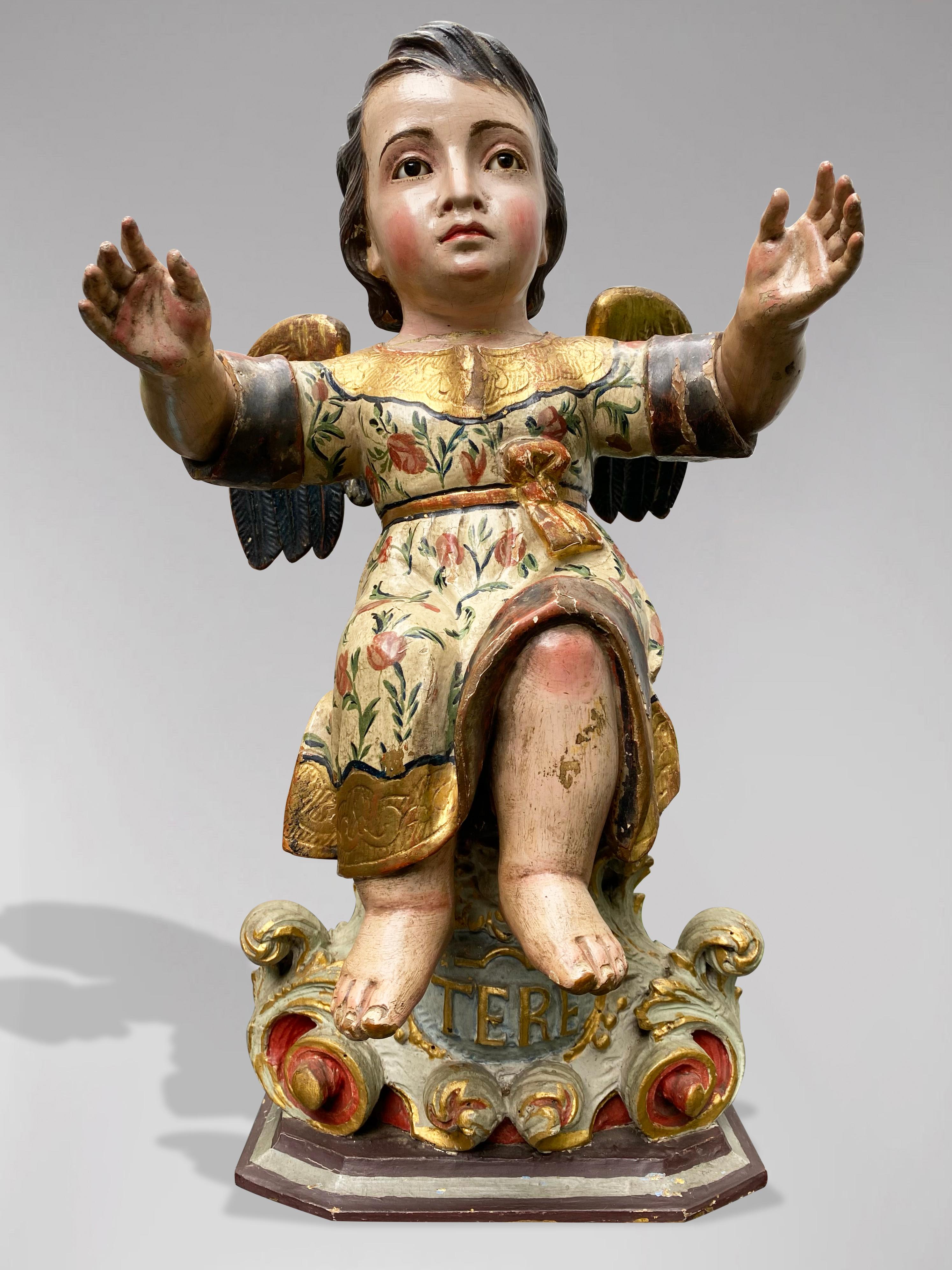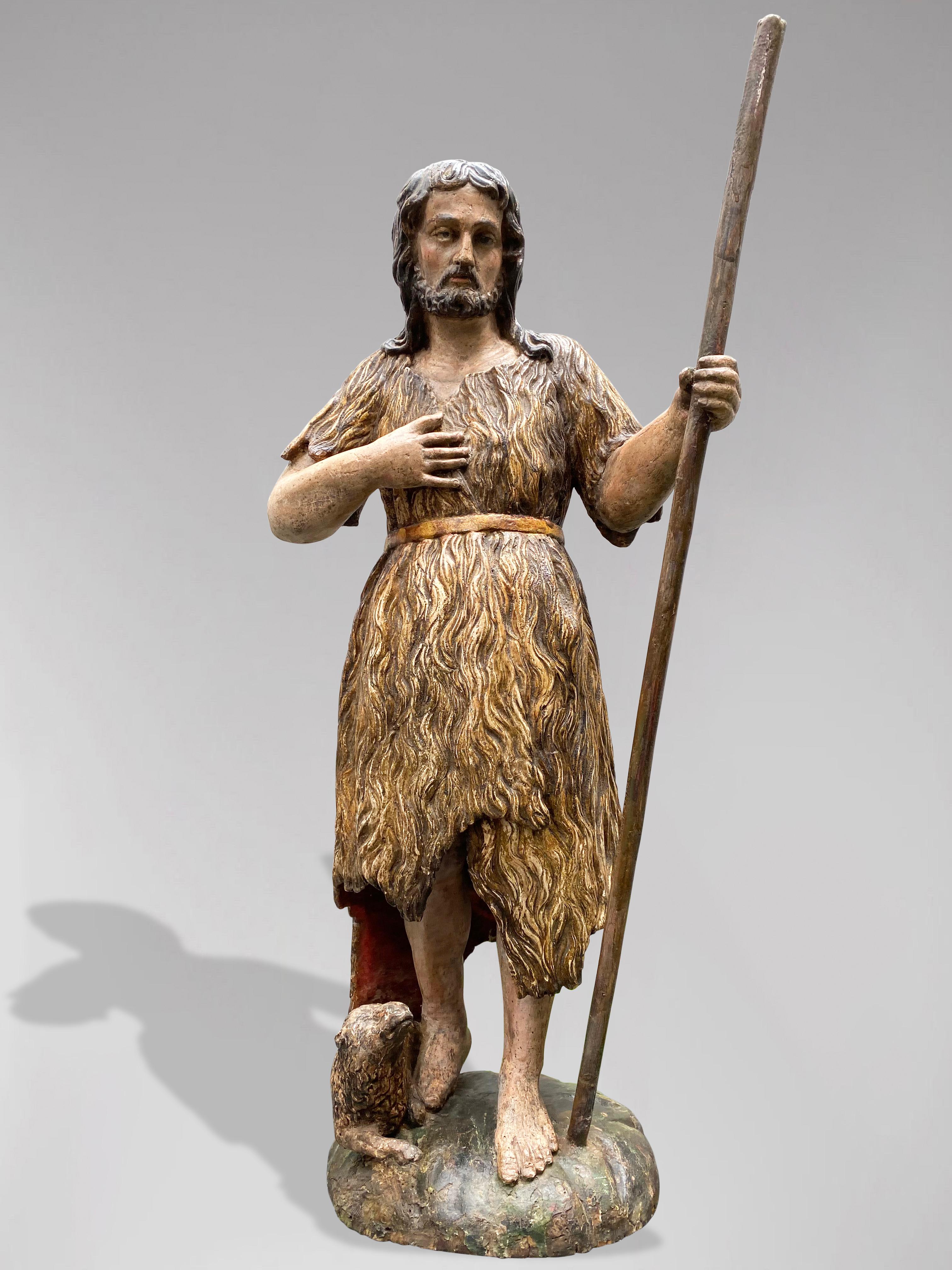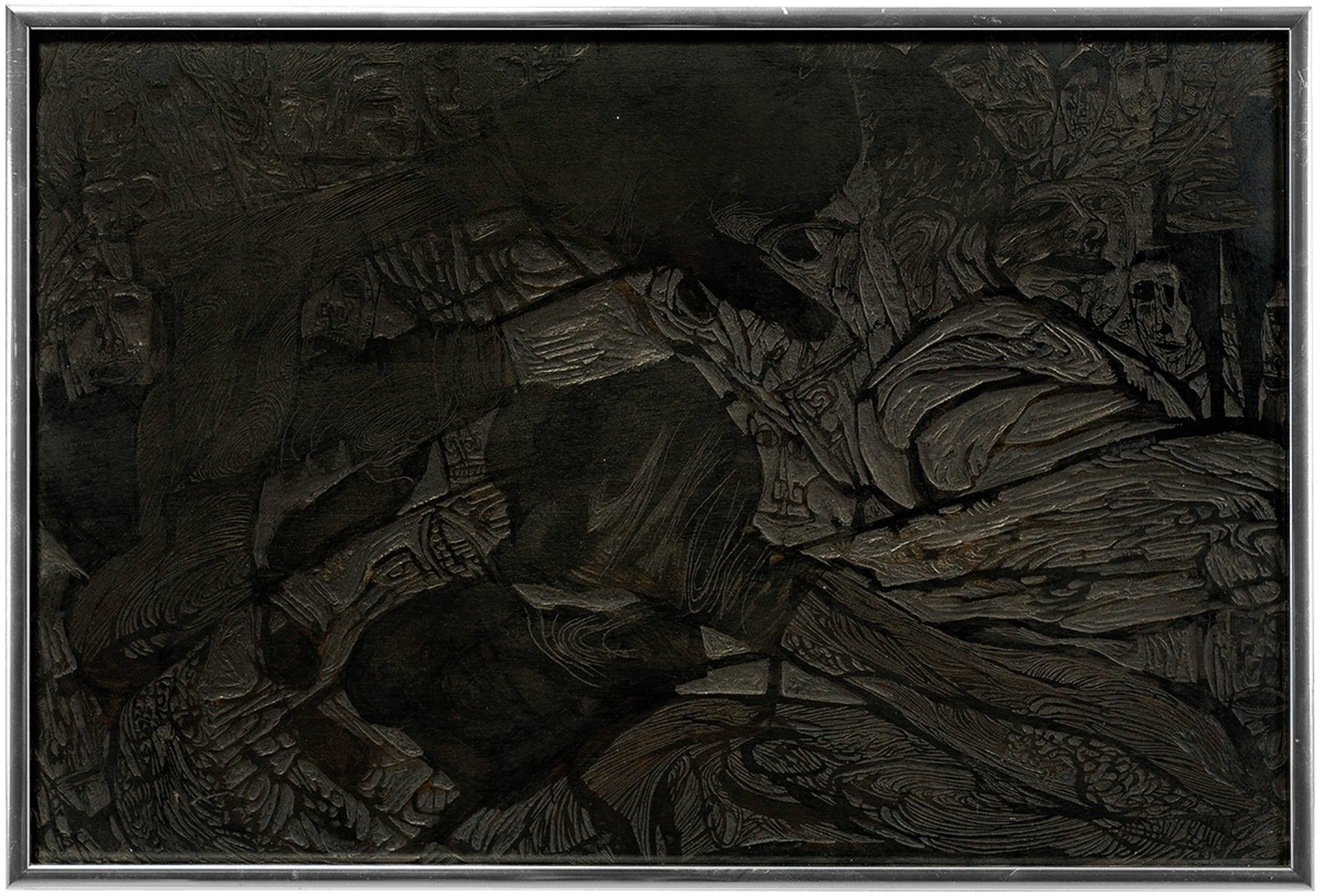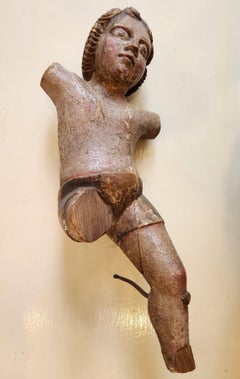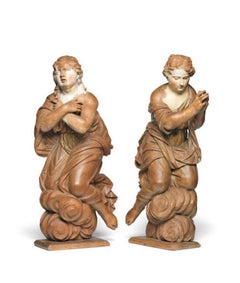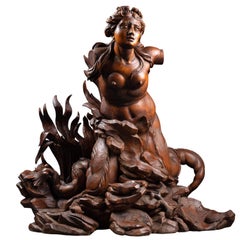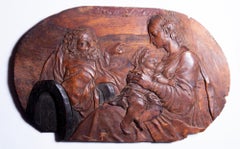
Holy Family, intarsia panel from Eger / Cheb, XVIII th c.
View Similar Items
1 of 5
UnknownHoly Family, intarsia panel from Eger / Cheb, XVIII th c.
About the Item
- Dimensions:Height: 4.34 in (11 cm)Width: 7.09 in (18 cm)Depth: 0.24 in (6 mm)
- Medium:
- Movement & Style:
- Period:1720-1729
- Condition:
- Gallery Location:Paris, FR
- Reference Number:1stDibs: LU80813685032
You May Also Like
- Polychrome Carved Mexican Sculpture -- Child JesusLocated in Troy, NYThis is a hand-carved wood polychromed sculpture of the Infant Jesus. A baroque figure probably from the 18th century, this religious figure was obtained in Mexico. It appears to hav...Category
18th Century Baroque Figurative Sculptures
MaterialsWood, Paint
$1,720 Sale Price20% Off - A pair of late 17th century Northern European carved oak angelsLocated in Bath, SomersetA pair of carved oak angels, circa 1700, with a lovely warm patina and faint traces of polychrome to the face and gilding to the body. The angels are both kn...Category
17th Century Baroque Figurative Sculptures
MaterialsOak
$5,631 Sale Price20% Off - A late 17th Italian carved limewood figure of Mermaid, circle of Filippo ParodiLocated in PARIS, FRA late 17th c. Italian carved figure of Mermaid, Circle of Filippo Parodi (Genoa, 1630 – July 22, 1702) Dimensions: h. 29.13 in, w. 30.31 in, p. 18.9 in (at the base) Magnificent...Category
Late 17th Century Baroque Figurative Sculptures
MaterialsWood
$19,331 Sale Price20% Off - Tuscan Baroque Nude Putto Candle Holder 17-18 century gilded woodLocated in Florence, ITOne flame candle holder putto made of gilded wood. Those kind of objects were present in churches or noble villas, specially during the Baroque times. The base is not coeval.Category
17th Century Baroque Nude Sculptures
MaterialsGold
$8,786 Sale Price20% Off - 17th C Polychromed fruitwood carved statue depicting Madonna, France.Located in brussel, BEAn exceptionally beautiful antique French wood carving, made in the 17th century. It depicts Madonna standing with open offering arms .The...Category
17th Century Baroque Figurative Sculptures
MaterialsWood
$2,504 Sale Price40% Off - Late 17th C, Baroque, Saint, Italian School, Wooden Sculpture of Saint AnthonyLocated in brussel, BEThe impressive life-size statue of St. Anthony (Lisbon, 1195 – Padua, 1231) used to be probably in a church or monastery of the mendicant order of the Franciscans. You can immediately recognize a Franciscan monk by his brown habit, brown hooded cloak...Category
17th Century Baroque Figurative Sculptures
MaterialsWood
